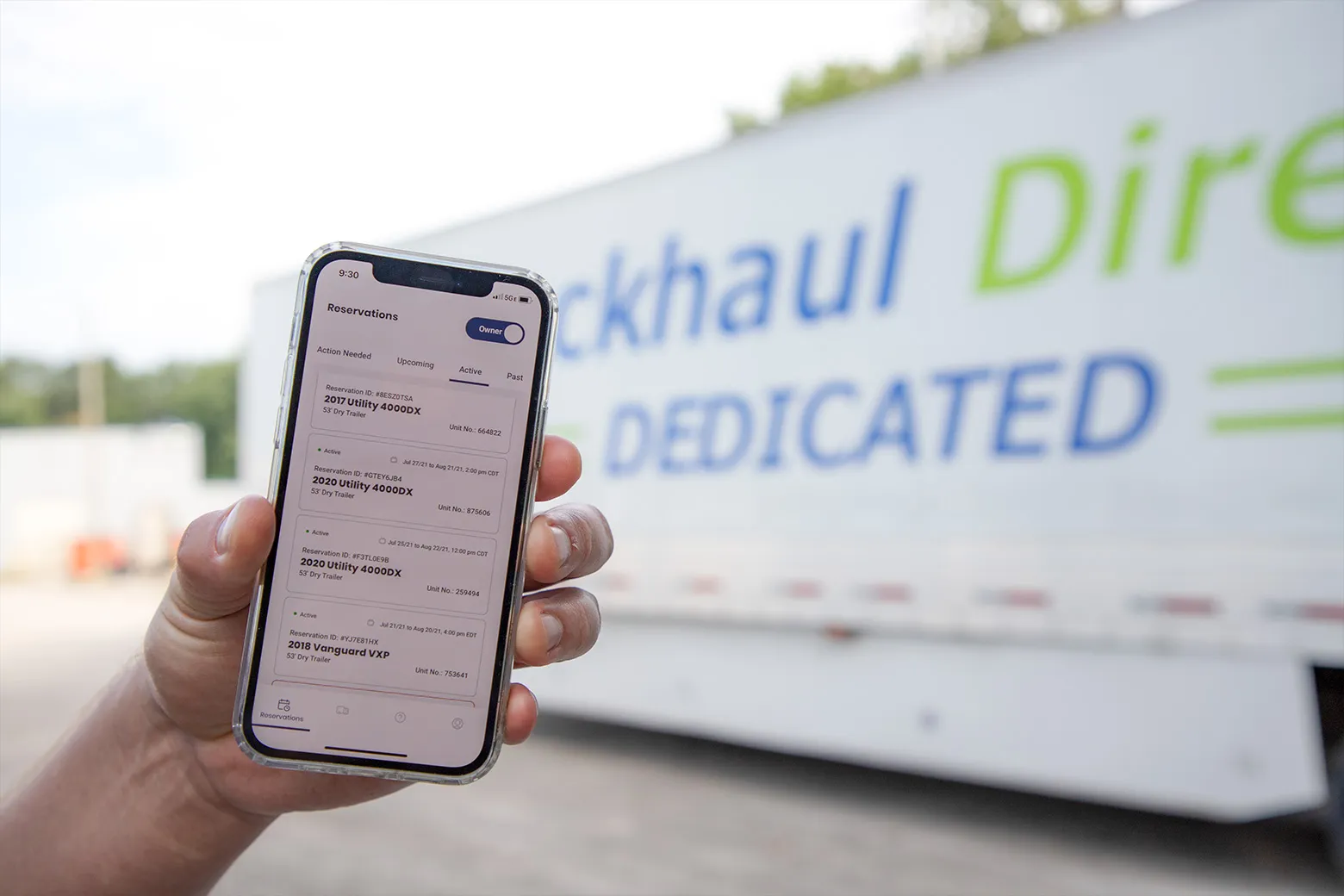
Backhaul Direct was founded in 2004 as a traditional freight brokerage company. Over the years, the business has grown to become a full-service logistics and technology company. Greg Harris, the CEO of Backhaul Direct, even took the effort to lead the development of proprietary Grapevine TMS software for their clients’ logistic needs. Things move fast in this industry, and competition is fierce, so Greg knew that to get ahead of other third-party logistics companies (3PLs), they again needed to offer something new. They decided to lease a commercial fleet made up of 53’ foot dry van trailers, which allowed them to have capacity available to clients as needed. However, these new vehicles had downtime and costs, such as parking, which were impacting Backhaul Direct’s bottom line.
Then they heard about COOP by Ryder. They joined the platform to support Backhaul’s new fleet services product and cover their transportation costs. With the platform, they have been able to reduce vehicle downtime, offset fleet costs, and increase overall revenue. It was a business strategy that would pay off well beyond their expectations.
Want to read more about Backhaul Direct has been able to earn over $300,000 in just a few months with COOP? Get the full case study here.